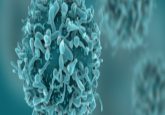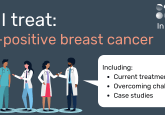New research could help personalize treatment in early bladder cancer

In a study published in Cancer Cell a research team from Aarhus University Hospital and Aarhus University (Aarhus, Denmark) was tasked with a European-wide project that mapped the molecular profile of early-stage bladder cancer in 460 patients across six countries; Denmark, Sweden, The Netherlands, Germany, Spain and Serbia.
The Aarhus team discovered that the tumors could be allocated into three primary classes, each with very different molecular characteristics and prognosis in terms of disease progression. These findings could lead to better optimization of therapy in individuals with the disease.
Bladder cancer is a common cancer that affects an estimated 1900 people in Denmark a year. The majority of these cases will only present with superficial tumors in the bladder upon first diagnosis. However, these patients may develop further lesions over time, with some individuals developing aggressive forms of the disease that require chemotherapy or complete removal of the bladder.
The group, led by Torben Ørntoft and Lars Dyrskjøt (both Aarhus University and Aarhus University Hospital) determined that tumors from the molecular group with the highest risk of developing aggressive bladder cancer contained genetic mutations and altered molecular pathways most often associated with advanced forms of the disease. Researchers also observed changes in the genes that are involved in regulation of the genomic structure in 86% of the tumors.
“This study provides new and valuable insight into the biology of the tumors in the earliest stages of the disease. Clinical and pathological examinations of the individual tumurs do not always reflect the risk of later disease aggressiveness. This study provides a tool for risk assessment of the patients and thus for providing optimal treatment,” stated Dyrskjøt.
Source: Aarhus University press release





